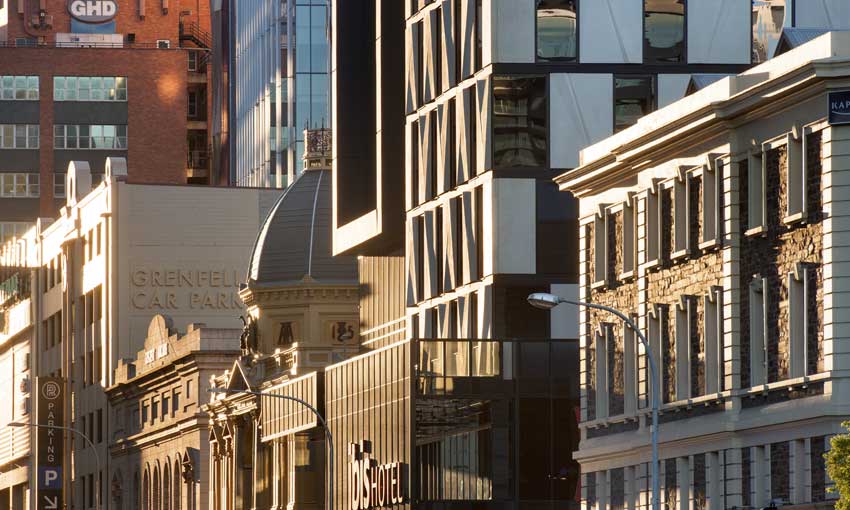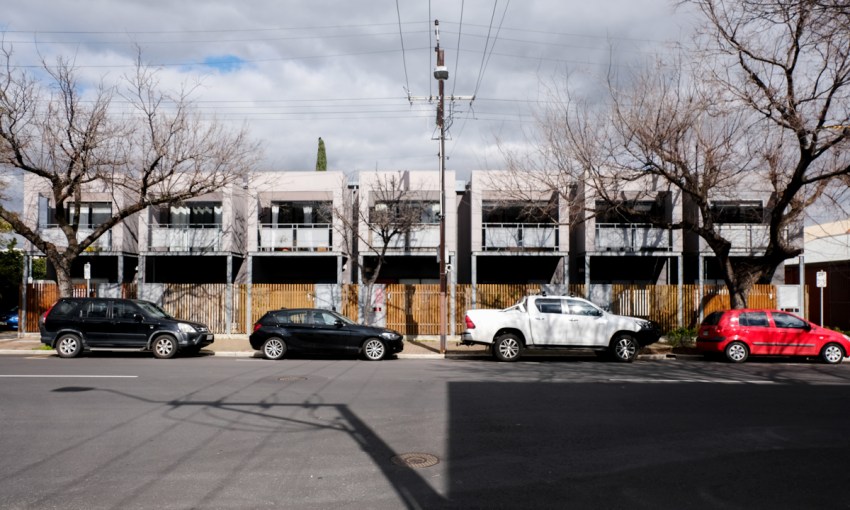While the fate of council-owned affordable housing remains unknown, a City of Adelaide motion originally intended to attract key city workers to buy property in the CBD was amended to allow those earning $100k per annum to participate.
CBD new-home buying incentive extended to higher-income earners
“This is now a completely different motion to what was initially intended,” councillor Helen Donovan told Town Hall this week, as members discussed an amended proposal that was originally designed to encourage low-income earners to buy property in the Adelaide CBD, but which now offers support to those earning above-average incomes.
“We’re now talking about offering a City of Adelaide subsidy to a very different cohort of people than it was initially proposed.”
Last October, Adelaide City Council resolved to develop a framework to give owner-occupiers who had purchased new and off-the-plan apartments a five-year moratorium on paying council rates.
The aim was to offer “key city workers” critical to running the CBD the chance to also live in the CBD, as administration identified many travel long distances to their city jobs.
The Adelaide City Council has long been aware of the need to increase its residential population, especially in the realm of affordable housing.
Councillor Alexander Hyde told the chamber on Tuesday night in previous decades the city had tens of thousands more people living within its bounds.
How it started
In the original motion, it was proposed by the administration that getting key workers to live in the CBD could address the issue of “high vacancy rates” in residential homes.
The long list of identified key workers includes those employed in emergency services, hospitality, cleaning, public transport, administration, security and arts.
Those eligible for the subsidy would need to be a key worker and fit other criteria, defined by the administration.
A single person’s income could not exceed $85,000, and the combined income of couples and families could not exceed $170,000. Assets could not exceed $482,000 for singles or $965,000 for couples and families.
Individuals were also required to move into the property within six months of purchase, and it should be their primary home. It was also stipulated the individual must be a natural person, so not a business or family trust.
If passed, a formal request will be submitted to the State Government asking for them to offer complementary incentives.
How it’s going
At the Tuesday meeting, the members were expected to discuss the original motion, which the administration recommended councillors approve.
Councillor Hyde began the discussion by proposing changes.
—Phil Martin.
Most notably, he suggested removing “key workers” from the eligibility criteria; replacing the term “apartments” with “dwellings”; and amending the income limits so singles earning up to $100,000, and couples or families earning up to $200,000 would be eligible.
“I note in the list of professions we had, there was no small business owner, so if a small business owner wanted to live in the city, they already work in the city, work more than most do in the city, they wouldn’t be eligible for this scheme,” he said.
“As well, there was some concern we were overly constraining ourselves, so this amendment just slightly raises the income levels.
“The rate remission will help people, but we also need our State Government to come to the table with incentives to support this scheme and to support owner-occupied growth in our city.”
According to Australian Bureau of Statistics data collected last year, the average weekly pay packet is $1542.60, which works out to a yearly income of $80,215.20.
The amended motion, then, would cater to those earning more than the average South Australian wage.

This picture: David Sievers
Councillor Anne Moran objected to the changes, saying the amended motion seemed to cater to a person earning a “fairly high salary” who wouldn’t need rate remission incentives.
“A couple earning $200,00 can pay their rates, as far as I’m concerned,” she told the chamber.
“This is social engineering at its worst.”
Councillor Phil Martin was critical of the scheme’s efficacy, based on the council’s previous attempts at similar initiatives.
The Adelaide City Council previously established a rate remission scheme that only attracted 122 individuals to sign up.
According to the administration report, most of the apartments purchased in the previous scheme were prices between $300,000 and $600,000, or “those in low to moderate-income groups”, councillor Martin said it cost “a million dollars of foregone revenue”.
“It’s a rich person’s incentive,” councillor Martin said.
“It [also] contrasts, I think, [against] our social housing policy, where, if you remember, according to the media, the council is contemplating selling the very houses that people who we put in there have been living in.
“That is to say, CityMag is saying we are going to pull the roof and the floor from under them, [while] on the other hand we’re saying to millionaires come and live in the city rate-free.”
—Cornerstone Housing.
The amended motion was ultimately carried.
Soon after, a confidential item on the agenda titled “Whitmore Square Tenancy” raised eyebrows, with councillor Martin demanding the public be included in the discussion.
“This is misnamed – it is not tenancy at all,” he told the room.
“The matter is something else. It is related to a property matter.”
In April, CityMag revealed council members had been presented the option to sell-down affordable housing assets by administration, as federal subsidies dried-up.
CityMag asked the City of Adelaide whether the confidential Whitmore Square Tenancy item was in fact about the sale of at least 26 affordable housing Whitmore Square Eco-Housing apartments managed by Cornerstone Housing, but they said they could not comment due to the item being confidential in nature.
When we asked about the status of these affordable housing units in general they said they could not comment.
CityMag also contacted Cornerstone Housing – a State Government affordable housing program – regarding the status of the properties, but a spokesperson also said “we will not comment on the sale of affordable housing in the City of Adelaide.”




